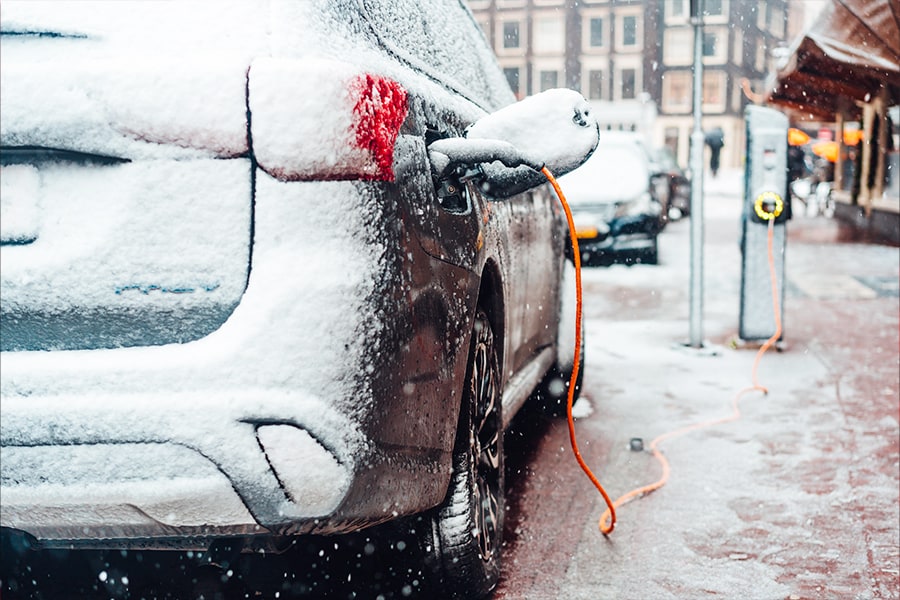
Why do electric cars lose range in winter?
Driving in winter, especially in bad weather, can cause your electric car to lose a significant amount of range
 Research recently published by the American company, Recurrent, on the loss of range of electric vehicles in winter reports an average loss of nearly 30% range, on a panel of 18 popular models.
Image: Shutterstock
Research recently published by the American company, Recurrent, on the loss of range of electric vehicles in winter reports an average loss of nearly 30% range, on a panel of 18 popular models.
Image: Shutterstock
With the onset of winter, electric vehicles tend to lose range. There are two main reasons for this: the increase in the battery's internal resistance when it's very cold, and the increased use of vehicle heating systems.
Generally speaking, lithium-ion batteries work best at temperatures between 20 and 25 degrees Celsius. Below this temperature, the battery's internal resistance rises, meaning it requires more energy to operate properly. Meanwhile, using heating systems (and/or heated seats) when it starts to get cold consumes a lot of energy, further reducing the vehicle's range. Other factors to be taken into account include snow, which increases rolling resistance and therefore requires more energy. Depending on the conditions, this loss of range can vary from 10 to 50%.
In these conditions, it's a good idea to take certain precautions to minimize the effects as much as possible. For example, you could try pre-heating your car by heating the interior while your electric vehicle is plugged into its charging station. In this way, the energy used for heating comes directly from the electrical grid and not from the car's battery. This also helps maintain the battery's operating temperature. It's also a good idea to drive smoothly, in order to consume as little energy as possible.
Also read: e-Trnl Energy: Cells that keep their cool
Research recently published by the American company, Recurrent, on the loss of range of electric vehicles in winter reports an average loss of nearly 30% range, on a panel of 18 popular models. It reveals that the Hyundai Kona is the most long-lasting car, with an estimated range of almost 330 km, despite a loss of around 34% compared with optimal conditions. Tesla's average loss of range is around a quarter. In the end, the model with the lowest loss in range is the Audi e-tron, with only a 16% drop in range in winter, or 270 km on a full charge.







